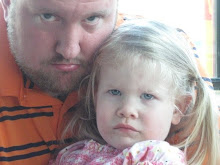I just read this article and thought is was great, I hope you enjoy it as much as I did!
The Strong-Willed Leader
There is a difference between a surrendered will and a weak will.
A side note to Meachem's account is his insistence that Jackson's formidable will and mind were shaped in surprising degree by his faith. Jackson attended church services for three to four hours growing up. Public prayers in his Presbyterian church could last over twenty minutes; longer than many Presbyterian sermons nowadays. As a grown man, Jackson said he read three chapters of Scripture every day.Jon Meachem's Pulitzer-Prize-winning biography of Andrew Jackson, American Lion, begins with a quintessential Jackson quote: "I was born for a storm, and calm does not suit me." (He includes another that is pure Teddy Roosevelt: "The darker the night, the bolder the lion.") He recounts how Jackson was beaten, scarred, and nearly killed as a fourteen year old boy for refusing to blacken the boots of a British officer.
When reading this I thought of Jim Collins' famous description of the highest level of leadership. The truly transformational leaders differ in almost every imaginable respect except for two common denominators: they have a deep sense of humility, and an indomitable will. In church leadership, a good deal gets written about the importance and virtue of humility, but not nearly so much gets written about the need for an indomitable will.
We are a little distrustful of the whole notion of will in leaders. Willfulness comes pretty close to the essence of sin. And perhaps the highest prayer ever recorded is an expression of surrender: "Not my will, but yours be done."
However, there is a fundamental difference between a surrendered will and a weak will.
An indomitable will is not the same as sheer stubbornness (being Swedish, this is something of an inherited trait.) Stubbornness lacks precisely the humility that makes learning possible, and gives conviction the flexibility needed to achieve ultimate goals. It is not egoism, which seeks to gain control for the gratification of the self.
At its heart, an indomitable will involves a sense of commitment; a binding of oneself to a task or a cause or a value so intensely that mere external forces are not allowed to sway or deter. At its best, in the words of Gerald May, it involves not willfulness but willingness—a giving of my will in the service of a greater mission.
So if you're involved in church leadership, ask yourself this question: How often have people close to you encouraged you to develop an indomitable will?
I have two main sources for this encouragement. One is a little group of old friends (or an old group of little friends) whom I've known far longer than I've worked at a church. Because they are not part of the church, they have no particular agenda other than wanting to call out the best in me. They are particularly situated to see where I am tempted to be discouraged or cave in to pressure rather than to persevere in the service of good. They strengthen my will.
The other source is God. When I am alone with him, the forces that drain my will are diminished of their strength. My choosing is both purified and strengthened. Amazingly, the One who demands the most surrender of my will is the One who wants and makes my will to be its strongest and best.
John Ortberg is editor at large of Leadership and pastor of Menlo Park Presbyterian Church in California.
